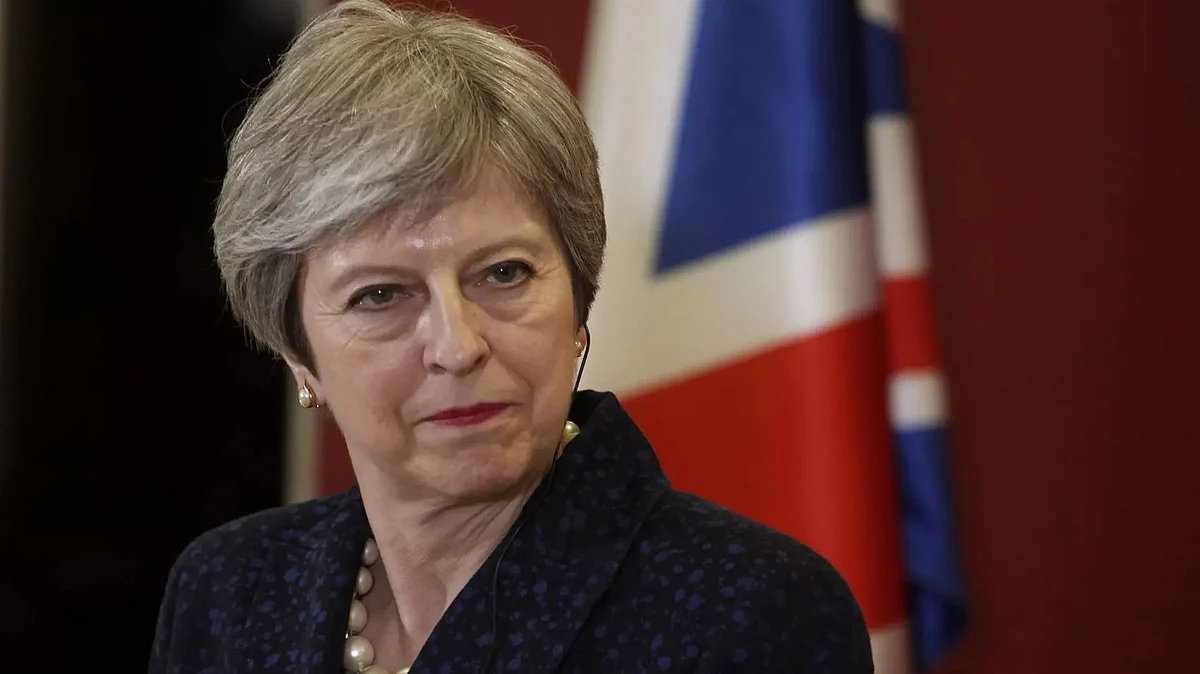No prospects for Britain to become great again
Even after two years of the referendum piloted by David, which authorised the country to part company with the EU, the British leadership lacks clarity whether they took the right decision

Utter confusion grips British rulers and their political parties on whether the UK should quit the EU. Even after two years of the referendum piloted by David Cameron, which authorised the country to part company with the EU, the British leadership lacks clarity whether they took the right decision.
The issues which have been tormenting the British should have actually been debated in public and political forums much ahead of going to polls for seeking the mandate. But this did not happen. Almost all the British leaders wavered in their stand. Their postures reflected non-commitment to the important issue.
Even the prominent political face of UK, Labour leader Jeremy Corbyn failed to articulate a comprehensive political line for which he had to face flak from some leaders of his own party. Sometime back British Prime Minister Theresa May had said “Brexit means Brexit.” What actually her observation meant is that Britain is going to leave the European Union with an unsure future in the global arena. This would also mean giving up the automatic free movement and free trade rights that come with EU membership.
The situation is wavering to such an extent that even today no one can definitely assert that UK is leaving the EU. There is lingering uncertainty. It is astonishing that neither Britain nor the EU agrees on terms for how it will leave. Then Britain’s Parliament will need to agree too. Also, some Brits want a “people’s vote”. In fact, there are plenty of people within May’s own ruling Conservative Party who want to remain in the EU - and many hardcore Brexiteers who don’t support her plan for the opposite reason. Also many Brexiteers want an agreement that keeps the economic benefits of the EU but ends free movement, takes away Brussels’ control over Britain’s trade laws and avoids a hard Irish border. Probably the “doomsday” scenario of a no-deal Brexit haunts Britain. Eventually it has to revert to WTO trade rules at its borders.
It is absolutely clear that May is gradually losing the battle. Her position as leader of the ruling Conservative Party is under assault by skeptic lawmakers who reject her EU exit strategy and want a more pro-Brexit leader. Latest developments provide indications that she may have to bow out before 2022
A desperate move is being made by the European leaders, who have voiced concerns about a no-deal Brexit; it could potentially disrupt their own agreements. The EU is also worried about other countries trying to leave, so it is driving a hard bargain with Britain and offering few concessions. Theoretically, yes - a point May herself recently alluded to for the first time after reaching her draft agreement. But it would be a risky move politically. The plan would now move to Brussels, where European leaders will debate and vote on Nov 25. But for this May Will have to be in power and keep her job, however.
Meanwhile, in a significant development after a five-hour meeting with her cabinet, and months of struggle and delay, Theresa May managed to get the approval of her cabinet for her Brexit plan. The plan still requires endorsement by European leaders, to be followed by a far more difficult vote in December in the British parliament. British political reporters are tweeting that a challenge to her leadership might be underway.
In the existing situation there are very few takers for her assertion that the Brexit withdrawal agreement will protect jobs and preserve the UK. Nevertheless, what is significant is that she did not say that it would make Britain great again.
Interestingly arch-Brexiteer Boris Johnson, who quit his job as foreign secretary over May’s proposals in July, had urged cabinet members to reject the agreement. A Conservative MP who opposes Brexit, Anna Soubry, said British voters should be offered another chance to cast a ballot on whether to support May’s deal or remain in the European Union.
Nevertheless, the EU and Britain need an agreement to keep trade flowing between the world’s biggest trading bloc and the UK, home to the biggest international financial centre. It was really stimulating to watch that May’s pro-Brexit ministers demanded a fixed end date to the backstop to ensure the UK wouldn’t be kept captive inside the EU customs union forever. But the EU refused, insisting that there could not be a time limit to a guarantee clause that might be needed indefinitely.
The 600-page divorce deal also contains a far shorter blueprint for the future relationship between the UK and the EU. The draft makes clear that the backstop arrangement for Northern Ireland will set the baseline for friction-free trade across the Irish border for the long term.
It is absolutely clear that May is gradually losing the battle. Her position as leader of the ruling Conservative Party is under assault by skeptic lawmakers who reject her EU exit strategy and want a more pro-Brexit leader. Latest developments provide indications that she may have to bow out before 2022.
Speaking at Heritage Foundation, a neoconservative thinktank, the men – who were joined by Shanker Singham of the rightwing Institute for Economic Affairs – complained that the deal effectively prevented the UK from having an independent trade policy and striking trade deals with other countries.
Corbyn told Labour members: “The government is falling apart before our eyes.”
Follow us on: Facebook, Twitter, Google News, Instagram
Join our official telegram channel (@nationalherald) and stay updated with the latest headlines
